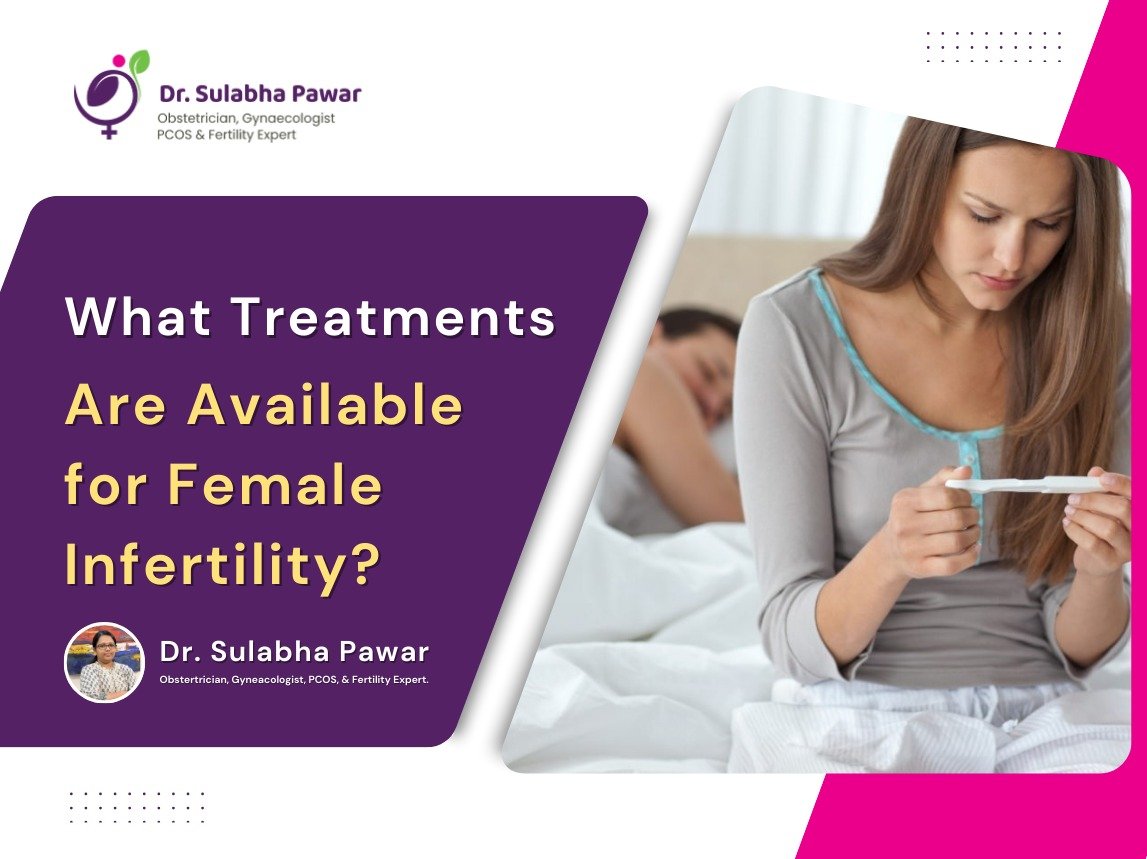What Treatments Are Available for Female Infertility? - Dr. Sulabha Pawar
Infertility is a growing concern among women worldwide. Various factors, including hormonal imbalances, structural abnormalities, lifestyle choices, and medical conditions, can contribute to female infertility. Fortunately, several treatment options are available to help women conceive. In this article, we will explore the most effective treatments for female infertility.
1. Lifestyle Modifications
In many cases, simple lifestyle changes can significantly improve fertility. These include:
- Maintaining a healthy weight through a balanced diet and regular exercise
- Reducing stress through yoga, meditation, or counseling
- Avoiding smoking, excessive alcohol consumption, and recreational drugs
- Managing underlying health conditions such as diabetes or thyroid disorders
2. Medications for Ovulation Induction
If a woman is experiencing ovulation issues, medications may be prescribed to stimulate egg production:
- Clomiphene Citrate (Clomid): Stimulates ovulation by influencing hormone levels.
- Letrozole (Femara): Often used in women with polycystic ovary syndrome (PCOS) to promote ovulation.
- Gonadotropins (FSH & LH Injections): Directly stimulate the ovaries to produce multiple eggs, often used in assisted reproductive techniques.
- Metformin: Helps improve insulin resistance in women with PCOS, which can restore ovulation.
3. Assisted Reproductive Technologies (ART)
For women who do not conceive with medication alone, ART procedures can significantly enhance fertility outcomes:
- Intrauterine Insemination (IUI): Sperm is directly placed into the uterus during ovulation to improve chances of fertilization.
- In Vitro Fertilization (IVF): A widely used method where eggs are retrieved, fertilized in a lab, and then implanted into the uterus.
- Intracytoplasmic Sperm Injection (ICSI): A specialized IVF technique where a single sperm is injected directly into an egg to aid fertilization.
- Frozen Embryo Transfer (FET): Previously frozen embryos from an earlier IVF cycle are thawed and implanted into the uterus.
4. Surgery for Structural Abnormalities
Some women may require surgical intervention to correct structural problems affecting fertility:
- Laparoscopy: A minimally invasive procedure to treat endometriosis, remove fibroids, or clear blocked fallopian tubes.
- Hysteroscopy: Used to remove uterine polyps, fibroids, or adhesions that may hinder conception.
5. Hormonal Treatments
Hormonal imbalances can lead to infertility, and hormone therapy may help restore reproductive function:
- Thyroid hormone therapy: For women with hypothyroidism or hyperthyroidism affecting ovulation.
- Progesterone supplements: Help maintain the uterine lining and support early pregnancy.
- Estrogen therapy: Used to regulate menstrual cycles in women with irregular periods.
6. Donor Eggs and Surrogacy
In cases where a woman’s eggs are not viable, alternative options include:
- Donor eggs: Eggs from a healthy donor are fertilized and implanted into the uterus.
- Surrogacy: Another woman carries the pregnancy for those unable to conceive or carry to term.
7. Alternative and Complementary Therapies
Some women find success in complementary treatments alongside medical therapies:
- Acupuncture: May enhance blood flow to reproductive organs and improve hormone balance.
- Ayurvedic and herbal remedies: Used in some cultures to boost fertility naturally.
Conclusion
Female infertility can be challenging, but with the right diagnosis and treatment, many women achieve successful pregnancies. A fertility specialist can help determine the best course of action based on individual health conditions and reproductive goals. If you are struggling with infertility, consult a qualified expert like Dr. Sulabha Pawar to explore your options and take the next step towards parenthood.




